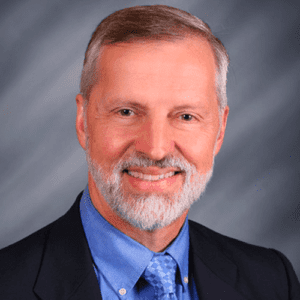
The purpose of this blog is to stimulate thought and discussion about important issues in healthcare. Opinions expressed are those of the author and do not necessarily express the views of CMDA. We encourage you to join the conversation on our website and share your experience, insight and expertise. CMDA has a rigorous and representative process in formulating official positions, which are largely limited to bioethical areas.
Christianity and Science: Are They Opposed?
February 22, 2017
by Andrè Van Mol, MD
Christianity versus science is a popular false dichotomy promoted to the aggravation of believers as well as non-believers with an eye on history. Add to that the assertion that the church provided the Dark Ages? There were no Dark Ages. It’s a myth. In God’s Battalions: The Case for the Crusades, Baylor Professor Rodney Stark documents how that period was one of strong innovation and technical advances in transportation, agriculture, military and other fields, propelling Europe ahead. Stark adds that “respected dictionaries and encyclopedias” now refute the use of “Dark Ages” terminology. Physicist and science historian James Hannam filled a book on the subject: The Genesis of Science: How the Christian Middle Ages Launched the Scientific Revolution.
Another frequently offered jab at Christianity is that Islamic culture was far more advanced and contributory. In the provocatively titled God’s Battalions: The Case for the Crusades, Professor Stark makes the case that many of the advances attributed to “Arab” or “Islamic” culture were products of those they conquered, aka the dhimmi: the Judeo-Christian-Greek culture of Byzantium; the Coptic and Nestorian heretical Christian sects; Persian Zoroastrians; Jews; and Hindus, among others. It was the dhimmi who translated great works into Arabic and published their own writings in Arabic under given Arabic names, thus misleading historians. The first scientific Arabic text was a medicine volume by a Syrian Christian priest in Alexandria translated by a Persian Jewish physician. Leading medical scholars Bakht-Ishu and ibn Ishaq were Nestorian Christians. Arab or Islamic medicine was chiefly Nestorian Christian medicine. The impressive Nestorian medical center in Nisibus, Syria trained the leading Arab and Muslim physicians, as did the Nestorian center in Jundishapur, Persia that was considered “the greatest intellectual center of the time” by science historian George Sarton, according to Stark. Middle-11th century Muslim writer Nasir-i Khrusau noted that Syrian and Egyptian scribes and physicians were usually Christians. One caveat, Arab culture goes back millennia further than that of Islam, and Christianity had an Arab presence more than five centuries before Islam.
The experimental scientific enterprise was birthed by Christianity. J. Robert Oppenheimer (“the bomb” bubba) said modern science was born out of the Christian worldview. Mathematician-philosopher Alfred North Whitehead noted that Christianity was the mother of modern science because of “the medieval insistence on the rationality of God.” The eminent Christian philosopher Alvin Plantinga gives his opinion: “Modern science was conceived, and born, and flourished in the matrix of Christian theism.”
Christians were present at the start, remained, and their influence was strongest in medicine. Some examples among many Christian founders of their branches of science include Copernicus and Kepler (celestial mechanics), Francis Bacon (called “the major prophet of the scientific revolution”), Blaise Pascal (hydrostatics), Robert Boyle (chemistry), John Ray (natural history), George Culver (comparative anatomy), Joseph Lister (antiseptic surgery), Louis Pasteur (bacteriology) and Gregor Mendel (genetics). Devout Christian Dr. Edward Jenner developed the first vaccination by using cowpox sore fluid to immunize against smallpox.
And the influence spread. In the November 2003 edition of Christian Doctor’s Digest, Dr. Vinod Shah of the Christian Medical Association of India stated that Hindu and Jain hospitals in India were responses to Christian hospitals present since the Portuguese arrived in the 1500s. Alleviating suffering was not in the worldview of Eastern religions insofar as suffering was seen as repayment of karmic debt for past wrongdoing, according to Dr. Shah.
Philosopher/theologian Ken Samples observes, “When secularists assert that religious ideas have no place in science, they seem blatantly unaware of the historical role that Christian theology played in shaping, encouraging, and sustaining the general character and presuppositions of modern science.”
In his 1995 Templeton Prize address, astrophysicist Paul Davies (not a Christian, by the way) said this regarding some presuppositions of science:
“People take it for granted that the physical world is both ordered and intelligible. The underlying order in nature—the laws of physics—are simply accepted as given, as brute facts. Nobody asks where they come from; at least they do not do so in polite company. However, even the most atheistic scientist accepts as an act of faith that the universe is not absurd, that there is rational basis to physical existence manifested as law-like order in nature that is at least part comprehensible to us. So science can proceed only if the scientist adopts an essentially theological worldview.”
Are science and Christianity at loggerheads? Sir William Bragg, 1915 Nobel Prize winner in physics, proclaimed: “Christianity and science are opposed…but only in the same sense as that which my thumb and forefinger are opposed—and between then, I can grasp everything.”

